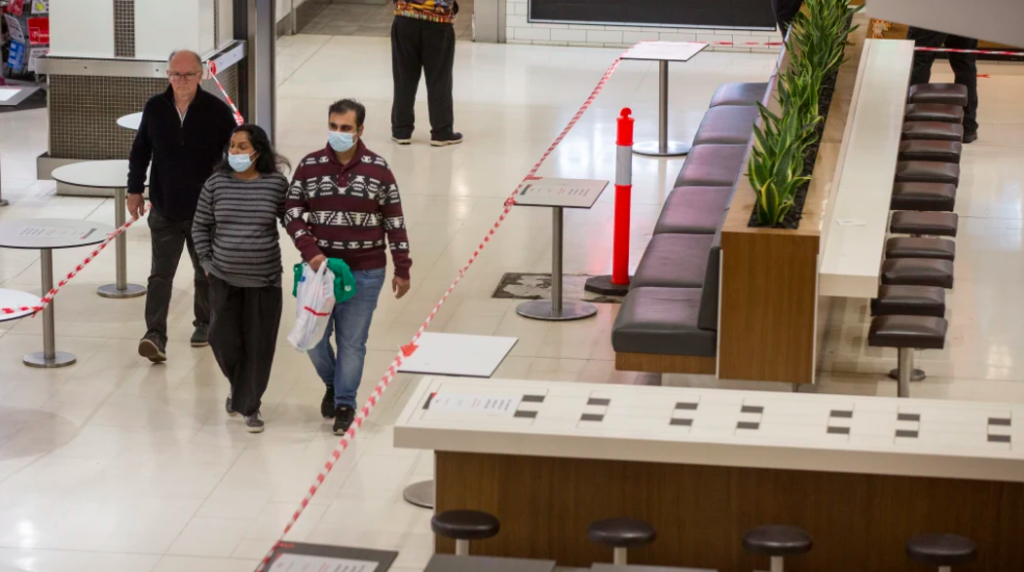
Value of Westfield malls plunges 10pc as pandemic takes toll
Westfield mall owner Scentre Group is the latest retail landlord to feel the scourge of the pandemic with the value of its vast shopping centre portfolio plunging 10 per cent in just six months.
Scentre Group, the country’s largest shopping centre owner and manager, said it would confirm the decline when it reports its half-year result on August 25, but the expected fall in values between December 2019 and June this year was “principally due to the estimated impact of the COVID-19 pandemic”.
The change in values was preliminary and would not affect operating earnings and funds from operations, Scentre said.
Despite the ongoing pain caused by the pandemic to shareholders and tenants, Scentre’s chief executive Peter Allen, and other key members of the executive team and board, will go back to full pay after fees and remuneration were temporarily cut in the early stages of the pandemic.
“The board has reviewed these arrangements and has determined that board fees and fixed remuneration for the executive team will revert to their previous levels, effective from 1 August 2020,” Scentre said.
Mr Allen’s remuneration last year was $7.5 million.
The steep decline in the value of Westfield’s malls mirrors its rival Vicinity Centres, the country’s second-largest shopping centre landlord, which saw $1.79 billion wiped off its extensive portfolio from COVID-19.
Vicinity, the co-owner of the mega Chadstone mall in Melbourne, last month reported values across its 60 malls slumped 11.3 per cent over the six months to June 30.
The pandemic has gutted foot traffic in major shopping centres across the country, forcing multiple shops to close and putting significant pressure on rental income from tenants.
Retail landlords aren’t out of the woods yet.
A severe six-week lockdown in Melbourne and restrictions in other parts of Victoria are set to decimate earnings as retailers close bricks and mortar stores and focus on online sales.
Scentre said it expects to report net operating cash flow – a measure of profitability – of more than $250 million for the half year, a preliminary estimate that is subject to audit review.
The mall owner said it had liquidity of $4.4 billion in June and did not receive any funds from the government under its JobKeeper scheme.
Macquarie analysts Darren Leung and Stuart McLean said Scentre’s operating cash flow for the first half of this year was $365 million below the previous half year. Rent collection for the June quarter was likely to about 39 per cent below expectations, they said.
But the group’s preliminary operating cash flow was “broadly in line with our expectations,” they said. “Structural trends continue to unfold in discretionary retail which we believe will impact property valuations, consequently placing pressure on balance sheet metrics,” the analysts said.
Australian investors marked Scentre’s shares down 3 per cent in morning trade to about $1.90.
The mall owner has seen a resurgence in shoppers as it reopened stores across Australia and New Zealand in June and July. It released figures last month showing customer visits in June were at 86 per cent of the level at the same time last year with 96 per cent of stores trading across Australia, although Melbourne’s latest lockdown is likely to put a dent in those figures over coming weeks.











